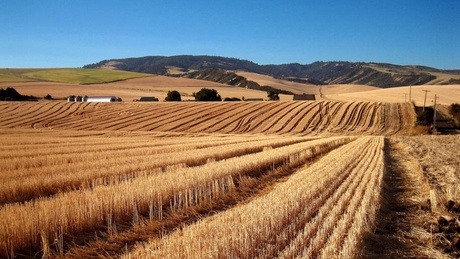forum
library
tutorial
contact

U.S. Wheat Expresses Concerns
About Import Investigation
by Matthew Weaver
Capital Press, June 23, 2017
|
the film forum library tutorial contact |

|
U.S. Wheat Expresses Concerns
by Matthew Weaver
|
The Commerce Department announced its investigation of steel imports in April. Findings could lead to
a conclusion that protective duties on imported steel should be applied for national security reasons.
 A U.S. Department of Commerce investigation into steel imports could open the door for other countries to retaliate by imposing restrictions on their purchases of commodities such as wheat, U.S. Wheat Associates officials say.
A U.S. Department of Commerce investigation into steel imports could open the door for other countries to retaliate by imposing restrictions on their purchases of commodities such as wheat, U.S. Wheat Associates officials say.
"We see the possibility that if something happens from this investigation with a commonly traded commodity like steel, then it just opens the doors to any other country who may wish to invoke national security to retaliate against the United States," Steve Mercer, vice president of communications for U.S. Wheat Associates, told the Capital Press. "One of the possible ways to do that is with restrictions on wheat imports."
The Commerce Department announced its investigation into steel imports in April, arguing that imported steel makes up about 26 percent of the amount used in the U.S. and could become a national security concern. The department will consider overcapacity, dumping, illegal subsidies and other factors to determine whether steel imports from other nations such as China "threaten American economic security and military preparedness," according to the department.
Findings could lead to a conclusion that protective duties on imported steel should be applied for national security reasons, according to U.S. Wheat.
The World Trade Organization allows countries to impose trade restrictions for very few reasons, including national security. The national security exception is rarely used, outside weapons and nuclear materials because "most countries understand that doing so would open a Pandora's Box of competing national security claims," according to a U.S. Wheat press release.
"We're looking at a potential path that opens up potential concern down the road," Mercer said.
"I'm all for challenging unfair subsidies, but farmers like me know you need to use the right tool to fix a problem," Jason Scott, U.S. Wheat chairman and a wheat farmer from Easton, Md., said in a press release from the organization. "Citing national security to block imports like this would be like lighting a fire to kill a weed. It might do the job but you could destroy the whole field."
Related Pages:
Focus on Results, Not Regulations, McMorris Rodgers Says by Matthew Weaver, Capital Press, 5/30/17
learn more on topics covered in the film
see the video
read the script
learn the songs
discussion forum
